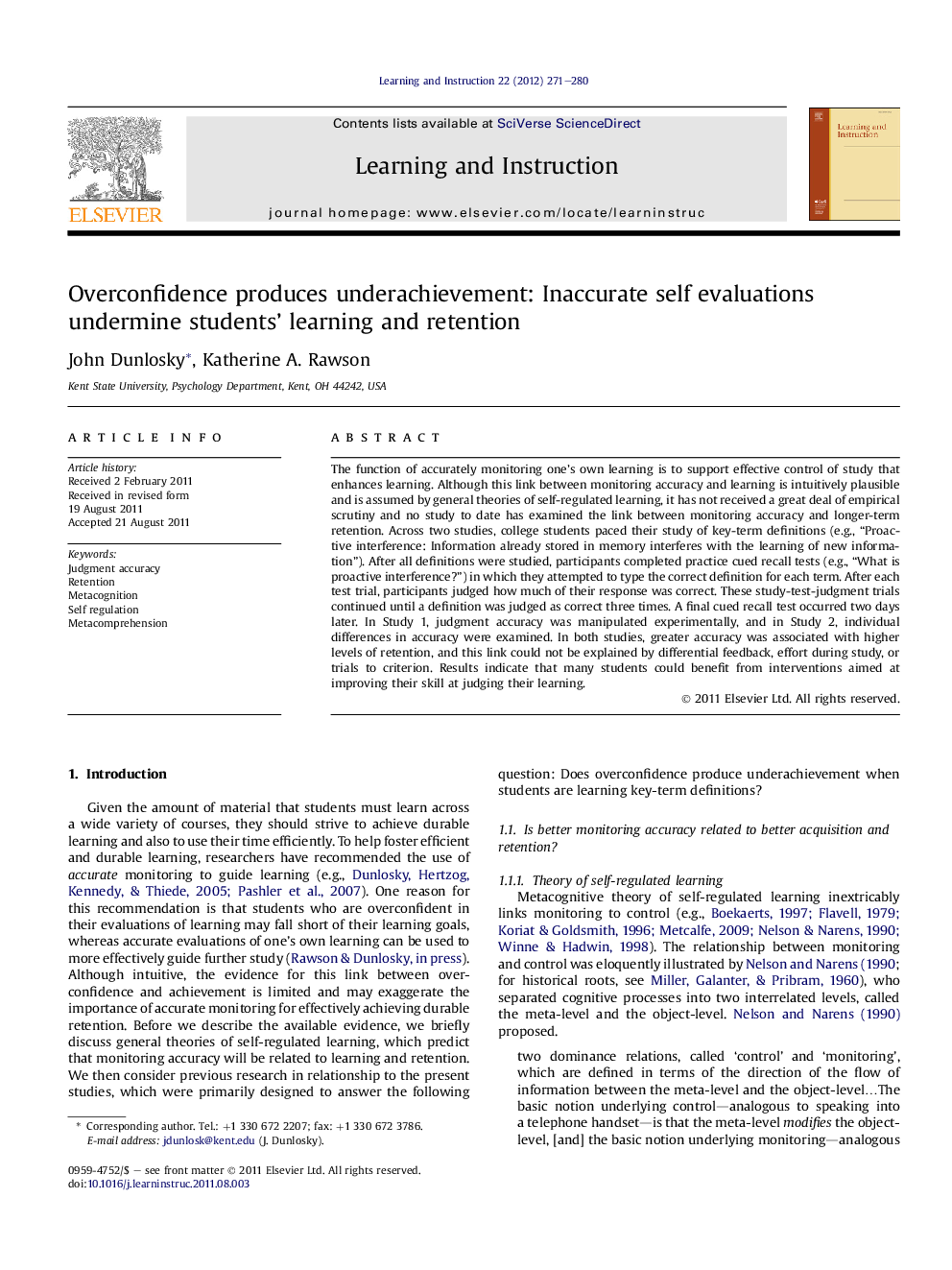| Article ID | Journal | Published Year | Pages | File Type |
|---|---|---|---|---|
| 365675 | Learning and Instruction | 2012 | 10 Pages |
The function of accurately monitoring one’s own learning is to support effective control of study that enhances learning. Although this link between monitoring accuracy and learning is intuitively plausible and is assumed by general theories of self-regulated learning, it has not received a great deal of empirical scrutiny and no study to date has examined the link between monitoring accuracy and longer-term retention. Across two studies, college students paced their study of key-term definitions (e.g., “Proactive interference: Information already stored in memory interferes with the learning of new information”). After all definitions were studied, participants completed practice cued recall tests (e.g., “What is proactive interference?”) in which they attempted to type the correct definition for each term. After each test trial, participants judged how much of their response was correct. These study-test-judgment trials continued until a definition was judged as correct three times. A final cued recall test occurred two days later. In Study 1, judgment accuracy was manipulated experimentally, and in Study 2, individual differences in accuracy were examined. In both studies, greater accuracy was associated with higher levels of retention, and this link could not be explained by differential feedback, effort during study, or trials to criterion. Results indicate that many students could benefit from interventions aimed at improving their skill at judging their learning.
► Does better accuracy at monitoring one’s learning during study yield better retention?. ► Few studies have been conducted investigating the link between absolute monitoring accuracy and retention. ► Using experimental and individual differences design, we demonstrate this critical link. ► Students who were less overconfident when evaluating their learning obtained much better retention. ► Overconfidence can produce underachievement.
